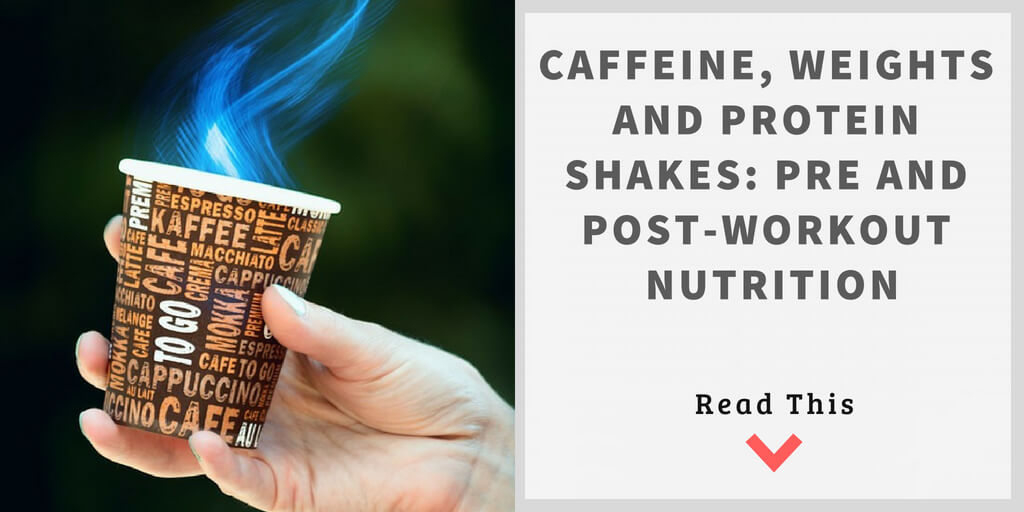Ever get to the gym feeling sluggish, struggle through your workout, and leave feeling totally wiped out?
It’s bound to happen at some point in time.
Or maybe, your workouts are going fine, but muscle soreness and fatigue tends to linger longer than you would like. But you power through it, hit your workout the next day anyway.
Sound familiar?
Eat to Train. Train to Eat
If you’re killing it in the gym, that’s great. But your goal to shred fat, build muscle, or transform your body won’t be complete without proper pre- and post-workout nutrition.
Take a look at your workouts and diet for the past week. And think about what you’ve been eating (or not eating) before and after a workout. What you eat and drink can fuel your performance, or make it harder to hustle, lift heavier, and come back for more.
Ever wonder about pre- and post-workout nutrition? Questions about this come up a lot in my private Facebook group. For example:
- If I wake up really early to train, is a pre-workout meal absolutely necessary?
- What’s a good pre-workout meal look like?
- Do I really need to eat a post-workout meal within 30 minutes?
- Is it OK if I eat my post-workout meal three hours after training?
If you’ve ever had the same questions about pre- and post-workout nutrition, you’re not alone.
Are You Obsessing Over Meal Timing?
To be honest, you can get totally lost in the minutia of meal timing around your workouts.
And for most people, it just isn’t necessary to obsess over the exact time to eat before or after a workout.
In the big picture, hitting your daily calorie and macro goals are a lot more important than the exact hour, minute, and second you gulp down a protein shake.
Trust me. Pre- and post-workout nutrition can make a difference. But if you’re not following a precision-military-style schedule for meals and snacks, you can still achieve your goals.
So why all the hype about pre- and post workout nutrition? Let’s take a closer look at how your food choices can impact performance and recovery.
Pre-workout Nutrition
You wake up early in the morning and hop in your car to drive to work. You’re just a few miles down the road when your engine starts to sputter and stall. You could keep going until your tank is totally dry. But instead, you coast into the nearest gas station, and fill up the tank. If you hurry, you can still merge into the fast lane and make it to work on time.
When you fill up your tank with a pre-workout meal, you’re giving your body the fuel it needs to:
- Have the energy to complete a workout
- Improve performance, strength, and endurance
- Hydrate muscles, joints, and tissue
- Preserve lean muscle mass
- Support recovery
Before your workout. Aim to eat about 30 to 60 minutes before training. Example: A pre-workout drink with caffeine and a small meal like oats, a protein shake (or mix protein powder with oats and extra water), eggs, and fruit.[1]
And if your schedule or your stomach isn’t compatible with a pre-workout meal. Don’t stress about it. Just eat your calories and macros later, and make sure you’re drinking about 3 to 4 liters of water a day.
Post-workout Nutrition
If you’ve ever tried to organize a big event or party with a lot of family and friends, there’s a good chance people got lost, had scheduling conflicts, or showed up late. But eventually, everyone made it to the venue and you all had a good time.
That’s how I want you to think about post-workout nutrition.
But what about the anabolic window, that so-called narrow window of time you need to eat after a workout to maximize gains? It’s one of those fitness myths that just won’t die.
For example, in a study published in the Journal of International Society of Sports Nutrition, researchers found no benefits to consuming a post-workout immediately after training to support muscle growth and repair, compared to consuming the same meal at a later time.[2] And similar finding on post-workout nutrition and hypertrophy immediately after training were published in a separate study.[3]
If you can’t gulp down a protein-shake immediately after training or munch your way through a mountain of food, don’t stress about it. Just make sure you’re diet is on track. A post-workout meal can help:
- Speed recovery
- Support hydration to replenish water, electrolytes and fluids lost from sweat
- Repair muscle damage
- Restore glycogen levels for energy
- Support hypertrophy
- Improve performance for the next workout
After your workout: If you can eat a protein-rich post-workout meal within a couple of hours of training, make it happen. Example: protein shake, eggs, sweet potato, black beans, with cheese and salsa.[4] If you can’t eat within a couple of hours, don’t worry about it. Just hit your daily calories and macros based on your goals.
I don’t know about you, but spending all this time thinking about eating before and after a workout has me feeling hungry. I’m going to grab a bite to eat.
Questions about pre- and post-workout nutrition? Let’s discuss on Facebook.
References
1. Boyes, J. (2015). Pre- and post-workout nutrition for strength training. American Council on Fitness. From: https://www.acefitness.org/education-and-resources/professional/expert-articles/5390/pre-and-post-workout-nutrition-for-strength-training
2. Aragon, A., et al. (2013). Nutrient timing revisited: is there a post-exercise anabolic window? Journal of the International Society of Sports Nutrition. From: https://jissn.biomedcentral.com/articles/10.1186/1550-2783-10-5
3. Schoenfeld, B., et al. (2013). The effect of protein timing on muscle strength and hypertrophy: a meta-analysis. Journal of the International Society of Sports Nutrition. From: https://link.springer.com/article/10.1186/1550-2783-10-53
4. Bachus, T., et al. (2014). Strength training post-workout nutrition guidelines. American Council on Fitness. From: https://www.acefitness.org/education-and-resources/professional/expert-articles/5101/strength-training-post-workout-nutrition-guidelines

